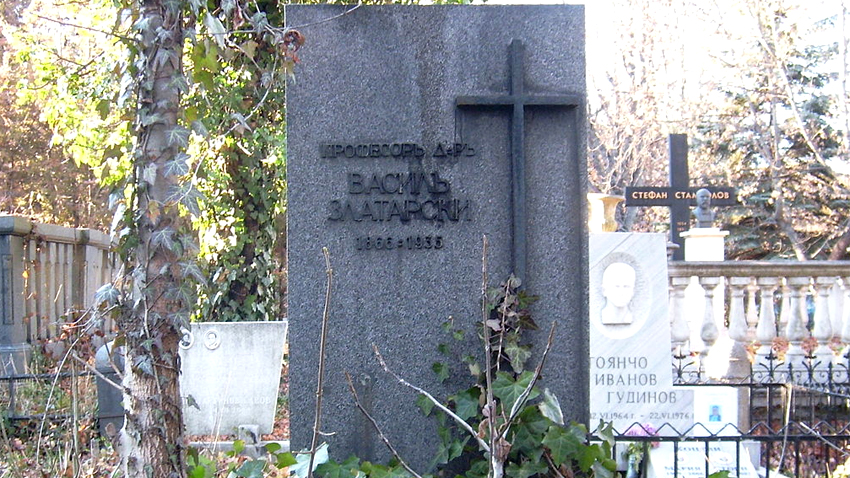This year Bulgaria marks the 150th birth anniversary of Prof. Vasil Zlatarski – an emblematic figure for our historiography. His family was an intellectual oneof enlighteners. His father – Nikola Popvasilev Zlatarski was one of the most educated people and a respected teacher in the Tarnovo area during the Ottoman rule. The man was known for his fight for the establishment of an independent Bulgarian church. He was a participant in the 1871 First People’s Ecclesiastical Assembly in Constantinople which compiled the regulation of the newly established Bulgarian Exarchate. Associate Prof. Lizbet Lyubenova from the Historical Research Institute with the Bulgarian Academy of Sciences (BAS) is the expert who gives us more on the occasion. She goes on to say that Vasil Zlatarski aimed at the writing of a monumental work – A Medieval History of the Bulgarian State. It is still used by students due to its uniqueness as a guide on its own, despite the controversial character of some of its theses. However:
“He always had the ambition to create a systematic history of Medieval Bulgaria, but he did not live long enough and the work remained unfinished. One can see traces of it all on the last floor of the Sofia University, where the Academic Museum is situated. The renowned pen of Prof. Zlatarski can be seen there – he wrote those thousands of pages with it. He had actually the comfort to be the first scholar in this sphere of history as the founder of this wing of history - Spiridon Palauzov left to work in Russia and died there. The other scholar - Marin Drinov, despite his several visits to Bulgaria, remained till the end of his life in Kharkov. Prof. Vasil Zlatarski graduated history in St. Petersburg and specialized archaeology in Berlin and Munich first. Then he returned to Sofia to become a tutor at the Superior School there which was destined to become the Sofia University later on. That was how he actually had no competition and could freely opt for the areas where he would develop his skills.”
Vasil Zlatarski didn’t succeed in finishing his work for the Second Bulgarian Empire, established after the end of the 1018 – 1185 Byzantine rule. “He was the one who officially divided the description of the history of the Bulgarian state into a First and Second Empire – the periodization we still use today,” Lizbet Lyubenova underlines.
“However, Zlatarski was not only famous for establishing the grounds of medieval studies in this country. At the same time his administrative activities were overwhelming – the attracting of young scholars of a high level – Nikola Milev, Petar Nikov, Petar Mutafchiev and others. That is why we tend to call this period the Golden Age of historical studies. However, Prof. Zlatarski spent rather too much time on administrative tasks – he was once adean, and twice a rector of the university, then he was several times a chairperson of the Bulgarian Literature Society, now BAS, of its history and philology department. I have always admired his personal correspondence in the periods when he had to interrupt his scientific activity, in order to be a rector. They used to have terms of a year only back then – with the idea lobbying to be avoided and resulting abuses afterwards. The rector didn’t have the right to apply again over the next three years. That was a really democratic principle – of rotation but unfortunately today we refuse to introduce it to our academic life.”

Actually Zlatarski suffered every time when he was elected a rector. In his letters he writes: “Jesus, why me again?! This administrative job makes a mess in all my research plans…” That is a true scientist. He is not tempted by power, money and cheap fame. He doesn’t want to take the prestigious back then position of a university rector. Science always comes first.
English version: Zhivko Stanchev
Meatfare Sunday in 2025 will be remembered as a major celebration for the Bulgarian Orthodox Church and the entire Bulgarian community in the United Kingdom. The "St. John of Rila" Orthodox Church, built with funds from the Bulgarian state and with..
All Souls' Day (Zadushnitsa in Bulgarian) is an important day for many Christians. On this day, we remember deceased relatives and loved ones. The first of the three All Souls' Days of the year, also known as the Great or All Souls' Day, falls on the..
152 years after Bulgaria lost its beloved son and advocate for a free, independent and tolerant state – Vasil Levski, his personality continues to excite and inspire Bulgarians from all generations. Scholars continue to study the work of the Apostle..
Meatfare Sunday in 2025 will be remembered as a major celebration for the Bulgarian Orthodox Church and the entire Bulgarian community in the United..

+359 2 9336 661
